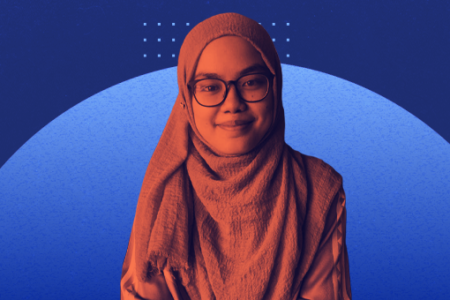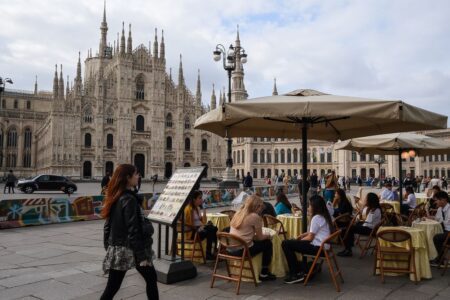
Going to Cambridge had always been a dream for Matthew Omoefe Offeh, one of a growing number of Black students who are slowly reshaping the elite university’s racial mix, helped in part by rapper Stormzy. The 18-year-old from Luton, north of London, has just started an engineering course at Cambridge’s Magdalene College, which traces its roots to 1428 and whose illustrious alumni include the 17th-century diarist Samuel Pepys. Offeh has benefited from Target Oxbridge, a free coaching programme that looks to open up Oxford and Cambridge to more working-class and minority students.
Oxford and Cambridge are the two oldest and most prestigious British universities, synonymous with educating the sons and daughters of the establishment from Britain and around the world. “Some people think that they won’t fit in, that Cambridge isn’t a place for Black students,” Offeh told AFP. “If you show your passion for your subject and your ability to do it, then you should be fine,” he said.
Offeh is among 137 Black undergraduates who started at Cambridge this academic year — a 50-percent increase on last year and a huge jump on 2015, when the number was a paltry 38. The increase has brought the proportion of black undergraduates in this year’s intake to 4.6 percent. That compares to 3.3 percent of black people in the overall population, according to the last census in 2011.
“That’s the highest figure we have ever had,” said Professor Graham Virgo, senior pro-vice chancellor at the university. “We’ve been working very hard to encourage more Black students to apply … we have known that black students are under-represented in the university,” he said.
Cambridge scholarships: Breaking glass ceilings
UK universities have been criticised for a lack of diversity and opportunities for Black and minority ethnic (BAME) students and staff. In June at the height of the Black Lives Matter protests, Britain’s first BAME female cabinet minister Valerie Amos said there was “deep structural and systemic discrimination” in higher education.
Cambridge postgraduate student Nia-Cerise Conteh has tweeted about her experiences of physical and verbal assaults. On a BBC documentary aired this month called “Being Black at Cambridge”, she described being racially abused by a university staff member on a train.
Depressed at a lacklustre response from the university, she had thought of dropping out, but said through tears: “I’m fighting for every other Black person who I know, who needs to occupy these spaces.” “Black people need to know that they need to get here so that we can pave the way for others. And we need to break that glass ceiling,” Conteh said. Cambridge said it took all such incidents seriously, and urged any affected students to come forward.
The university’s intake has traditionally favoured pupils from wealthy private schools over inner-city state establishments. But it has tried to encourage those from less well-off backgrounds to apply with information campaigns, scholarships and outreach on social media.
 British rapper Stormzy, real name Michael Omari Owuo Jr, performs on the Pyramid Stage on the third day of the Glastonbury Festival of Music and Performing Arts on Worthy Farm near the village of Pilton in Somerset, South West England, on June 28, 2019. Source: Oli Scarff/AFP
British rapper Stormzy, real name Michael Omari Owuo Jr, performs on the Pyramid Stage on the third day of the Glastonbury Festival of Music and Performing Arts on Worthy Farm near the village of Pilton in Somerset, South West England, on June 28, 2019. Source: Oli Scarff/AFP
Grime music star Stormzy launched a scholarship in 2018 to support Black students at Cambridge who cannot afford the annual tuition fees of about £9,000 (nearly $12,000 or 10,000 euros) and the living costs. Initially Stormzy proposed the scheme to Oxford, which he says turned him down. This year, he is offering two Cambridge scholarships worth £18,000 ($23,000 or 19,000 euros). “Clearly that’s been really important for those students. But also, it’s really raised the profile of the university among potential applicants,” Virgo said.
‘Decolonise’ libraries
Wanipa Ndhlovu is in her third year studying law at Trinity College, Prince Charles’ alma mater and the grandest of all the university’s constituent colleges. She said the growth in numbers of Black students at Cambridge had been visible. “The change from my first and my second year was really, really substantial,” the 20-year-old told AFP. Looking at younger year groups, she felt “it’s much easier for them to integrate”.
Ndhlovu was born in Zambia and said she had experienced the same kind of “micro aggressions and ignorance” at Cambridge as growing up in York, northern England. She admitted to being overwhelmed by Cambridge’s imposing buildings, and worried that she would not meet anyone who was like her. The killing by police of George Floyd in the United States, which sparked the wave of Black Lives Matter protests across the world, “brought to my attention again that there’s so many people who, no matter what I do, no matter what I achieve, just won’t see me as equal”.
Virgo said he has met many students who want university authorities to take action in light of the protests. That meant ensuring “their voice is heard in the classroom, what we study — and we really are looking at our curriculum to make sure that Black voices and Black experience is reflected”. The university’s response also includes a programme to “decolonise” its vast central library, to try to diversify and widen its collections.
By AFP










